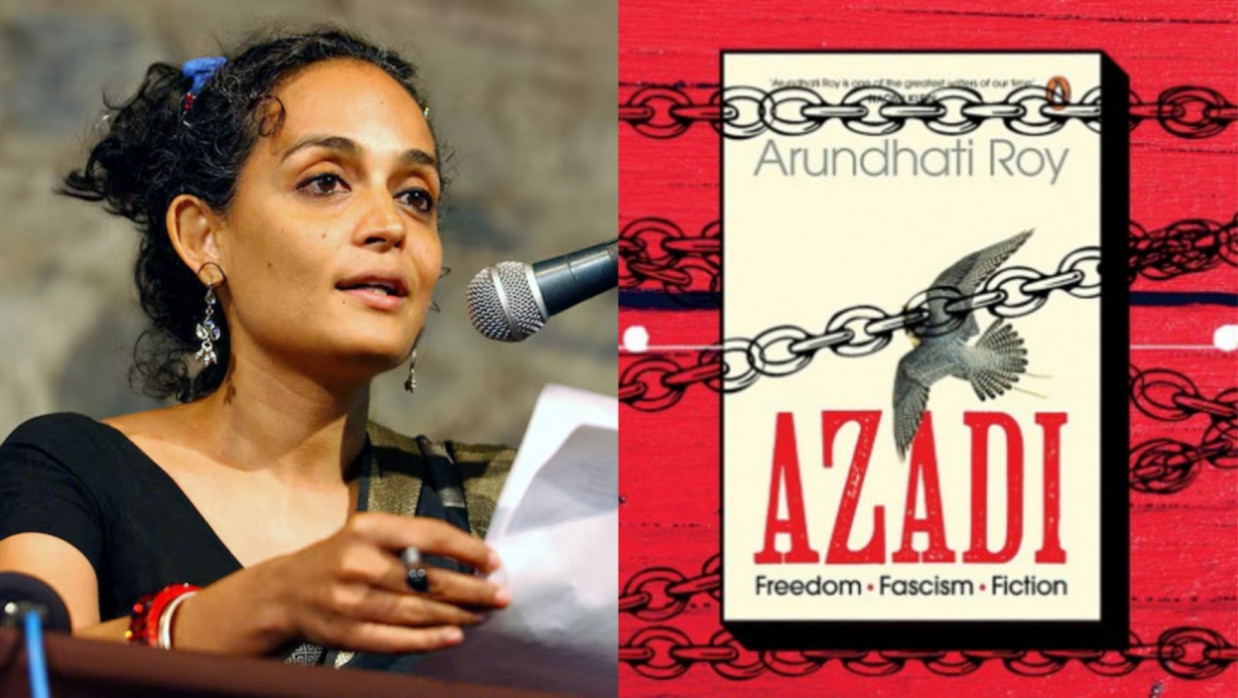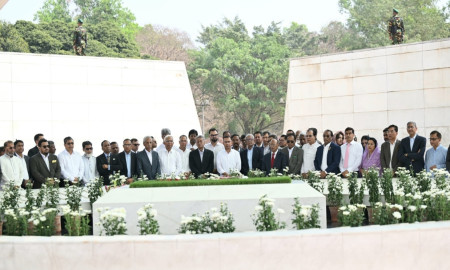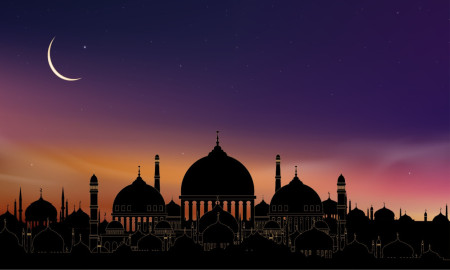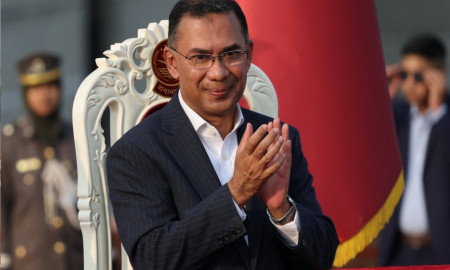India Slaps Ban on Arundhati Roy’s ‘Azadi’, 24 Other Books in Kashmir

The Indian government has banned 25 books, including Booker Prize winner Arundhati Roy’s Azadi, in India-administered Jammu and Kashmir, alleging they propagate misinformation about Kashmir and fuel separatist sentiments, as per a notification from the region’s home department.
The order, issued under Lieutenant Governor Manoj Sinha, a Bharatiya Janata Party (BJP) appointee under Prime Minister Narendra Modi’s government, states, “It has come to the government’s notice that certain books are disseminating misinformation about Kashmir and provoking separatist sentiments.”
The banned titles, authored by Indian and international writers, historians, and researchers, include works detailing Kashmir’s political realities, human rights violations, and violence. These include Roy’s Azadi, which references thousands killed or disappeared by Indian forces, and Christopher Snedden’s Independent Kashmir, analyzing the region’s independence movement. Other books are Hafsa Kanjwal’s Colonizing Kashmir: State-Building Under Indian Occupation and Sumantra Bose’s Contested Lands: Israel-Palestine, Kashmir, Bosnia, Cyprus and Sri Lanka.
Authorities claim these books “glorify terrorism,” distort history, and incite violence, alleging they radicalize Kashmiri youth. The ban, enacted under Section 98 of the Indian Citizens’ Security Code Act, 2023, mandates their seizure.
Jammu and Kashmir, one of the world’s most militarized regions, has been contested by India and Pakistan since 1947, with both controlling parts of the territory. Since the 1990s, India-administered Kashmir has faced an armed separatist movement, countered by Indian military operations accused of enforced disappearances, extrajudicial killings, and stifling free speech—allegations the Indian government consistently denies.
Authors of the banned books have sharply criticized the decision. Angana Chatterji, co-author of Kashmir: The Case for Freedom and a University of California researcher, said, “This ban attempts to criminalize research and portray it as anti-state propaganda.” She added, “Its symbolic and practical impact will be far-reaching. It is a psychological effort to intimidate Kashmiris and silence their suffering and resistance.” Chatterji further alleged the order reflects a broader agenda to erase Kashmir’s history of state violence, repression, and impunity, signaling the government’s fear of criticism and intolerance for free thought.
In February this year, police raids on Kashmir’s bookstores resulted in the seizure of over 650 books accused of promoting banned ideologies. Since 2019, when the Modi government revoked Jammu and Kashmir’s autonomy and statehood, placing it under direct central control, allegations of curbs on free speech and media have surged.
Banned Books Include:
-
Azadi by Arundhati Roy
-
Independent Kashmir by Christopher Snedden
-
Colonizing Kashmir: State-Building Under Indian Occupation by Hafsa Kanjwal
-
Contested Lands: Israel-Palestine, Kashmir, Bosnia, Cyprus and Sri Lanka by Sumantra Bose








